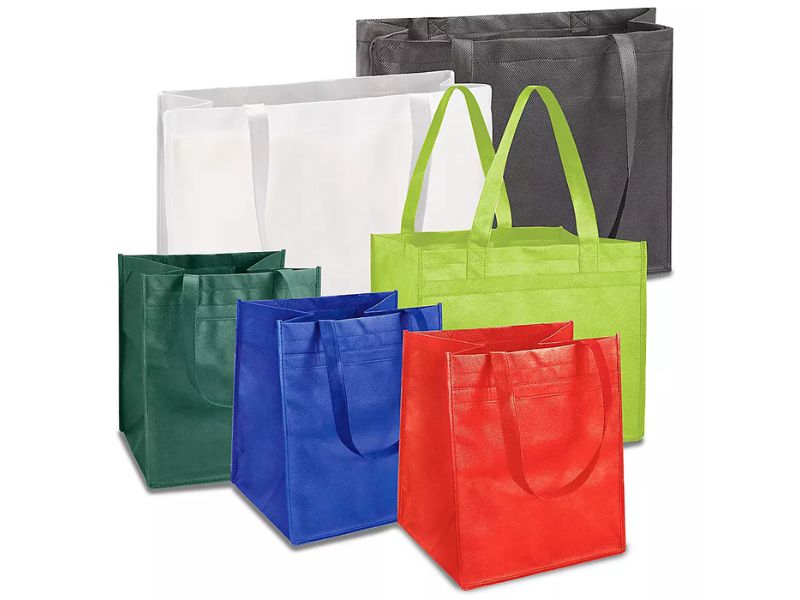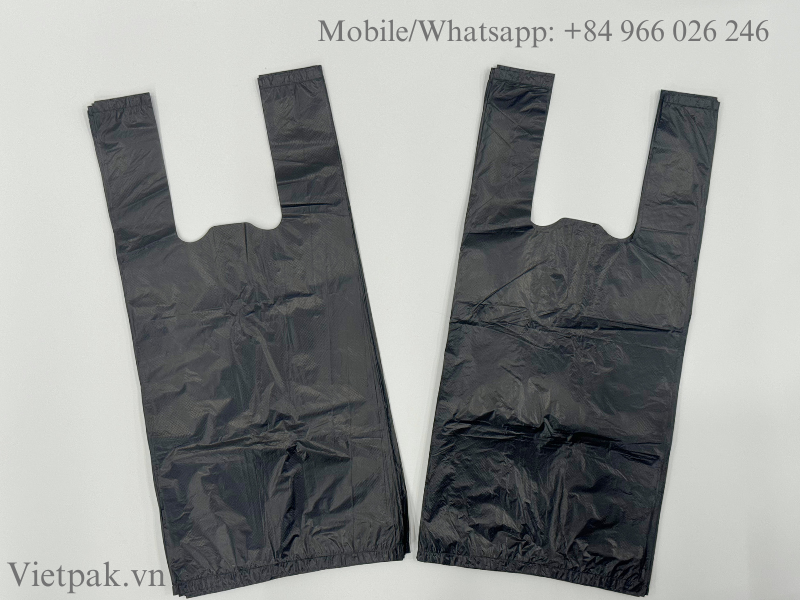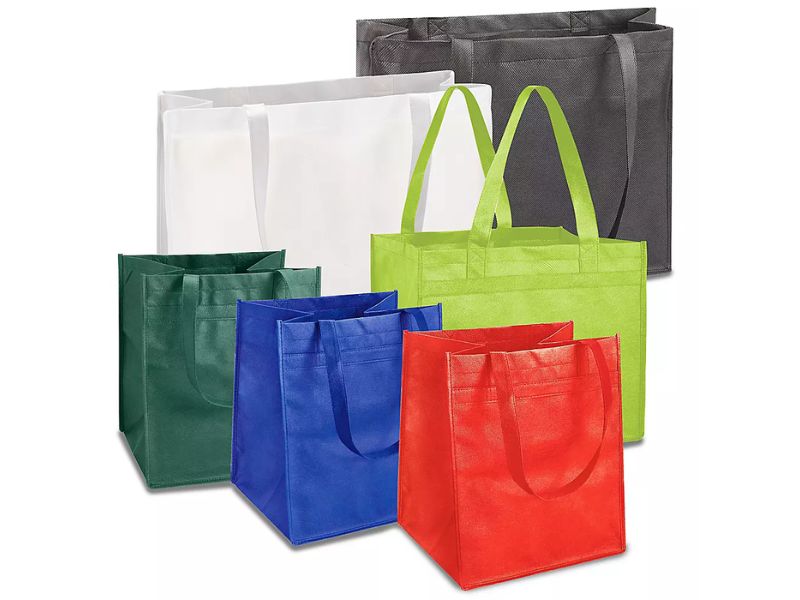
11
10In the fast-paced world of commerce, every decision a business makes is scrutinized through the lens of cost-effectiveness. Among these decisions, the choice of packaging—specifically, the use of plastic bags—has long been favored for its perceived low cost and convenience. But as consumer attitudes shift and environmental concerns become more pressing, it’s worth reevaluating whether plastic bags are truly as cost-effective as they seem.

plastic shopping bags made in Vietnam
At first glance, plastic bags appear to be an ideal solution for businesses looking to minimize expenses. They are cheap to produce, lightweight, and durable, making them a convenient option for retailers of all sizes. A single plastic bag costs just a few cents to manufacture, and when purchased in bulk, the cost can be further reduced.
For businesses, especially small to medium-sized enterprises (SMEs) operating on tight margins, this low upfront cost is appealing. The minimal storage space required for plastic bags compared to alternatives, like paper bags or reusable totes, also adds to their cost-effectiveness.
However, the true cost of plastic bags extends far beyond their initial price tag. The environmental impact of plastic pollution has become impossible to ignore, and businesses that continue to use plastic bags may find themselves on the wrong side of public opinion.
Plastic bags contribute significantly to pollution, particularly in marine environments, where they pose a threat to wildlife. The production of plastic bags also relies on fossil fuels, contributing to carbon emissions and climate change. As awareness of these issues grows, consumers are increasingly demanding more sustainable practices from businesses.
Ignoring these concerns can lead to hidden costs for businesses. For example, companies that are perceived as environmentally irresponsible may face backlash on social media, leading to reputational damage and loss of customers. Additionally, many jurisdictions have implemented taxes or outright bans on plastic bags, forcing businesses to absorb these additional costs or pass them on to consumers.
Consumer behavior is rapidly shifting towards sustainability, with more people willing to support businesses that demonstrate environmental responsibility. This shift has been accelerated by global movements such as “zero waste” and the push for a circular economy. As a result, businesses that continue to rely on plastic bags may find themselves out of step with consumer preferences.

PP non woven shopping bag
According to a study conducted by the Environmental Protection Agency (EPA), a growing number of consumers prefer to shop with businesses that offer eco-friendly packaging options. The same study found that 78% of consumers are willing to pay a premium for products and services that are environmentally friendly.
By aligning with these consumer preferences, businesses can not only enhance their brand image but also potentially increase their profit margins. Offering alternatives to plastic bags, such as reusable totes or paper bags made from recycled materials, can position a business as a leader in sustainability.
Switching to more sustainable packaging options may require an initial investment, but the long-term economic benefits can be significant. Reusable bags, for example, can be sold to customers at a profit, turning a cost center into a revenue stream. Branded reusable bags can also serve as a marketing tool, increasing brand visibility every time the bag is used.
Moreover, by reducing reliance on single-use plastic bags, businesses can decrease their waste management costs. Plastic bags are notorious for clogging machinery at recycling facilities, leading to increased maintenance costs and operational downtime. By using more sustainable packaging, businesses can streamline their waste management processes and reduce associated costs.
Many companies have already successfully transitioned away from plastic bags and reported positive outcomes. For example, IKEA phased out plastic bags in 2008, replacing them with reusable bags. The move was well-received by customers, and the company has since seen increased customer loyalty and a boost in brand reputation.
In addition to consumer demand, businesses must also navigate an increasingly complex regulatory landscape. Numerous countries and cities around the world have introduced legislation aimed at reducing plastic bag usage. These regulations vary from taxes and levies on plastic bags to outright bans.
For instance, the European Union has implemented stringent regulations requiring member states to reduce plastic bag consumption by 80% by 2025. In the United States, states like California have banned single-use plastic bags, requiring businesses to offer alternatives. Failing to comply with these regulations can result in fines and other penalties, adding to the cost of using plastic bags.
Proactively switching to sustainable alternatives can help businesses avoid these legal risks and stay ahead of regulatory changes. Furthermore, businesses that take a proactive approach to sustainability are often viewed more favorably by regulators, which can lead to benefits such as easier access to permits or incentives for sustainable practices.
In today’s competitive market, brand reputation is everything. Businesses that are seen as socially responsible often enjoy a stronger connection with their customers, leading to increased customer loyalty and higher lifetime value. By moving away from plastic bags and adopting more sustainable practices, businesses can build a brand that resonates with modern consumers.
This is particularly important for businesses targeting younger demographics, such as Millennials and Generation Z, who are more likely to support brands that align with their values. According to a Nielsen report, 73% of Millennials are willing to spend more on products from sustainable brands. By embracing sustainability, businesses can tap into this growing market segment and secure their long-term success.
While plastic bags may seem like a cost-effective option at first glance, the hidden costs associated with their use can quickly add up. Environmental damage, regulatory penalties, and the potential loss of customers who value sustainability all contribute to the true cost of plastic bags.
By switching to more sustainable alternatives, businesses can not only reduce their environmental impact but also improve their bottom line. Reusable and eco-friendly packaging options can create new revenue streams, enhance brand reputation, and align businesses with consumer preferences. In a world where sustainability is no longer a choice but a necessity, rethinking the cost-effectiveness of plastic bags is not just good for the planet—it’s good for business.
In the long run, investing in sustainable practices and packaging options will pay off, helping businesses thrive in an increasingly eco-conscious market. The time to make the switch is now, before the cost of inaction becomes too high to bear.
In today’s rapidly evolving market, sustainability is no longer just a trend—it’s a necessity. As consumers become increasingly aware of the environmental impact of their choices, businesses are compelled to innovate and offer products that align with these values. Vietpak Company Limited is at the forefront of this movement, making significant investments in technology to provide more sustainable packaging solutions for our customers.
Ziploc bag is a type of plastic bag made from LDPE or Low Density Polyethylene material. People can call ziploc bag as zipper plastic bag, slide plastic bags. The name of the ziploc bag is because it has the lock on top of it to close the bags. Thanks to the tight lock which helps to prevent air to go inside, the food and vegetabale can be stored with freshness as well as protect items from moisture and contaminants
Ziploc bags are used very often in our
By choosing VIETPAK COMPANY LIMITED for your reusable HDPE softloop bags, you benefit from high-quality products, customization options, competitive pricing, and exceptional service. Their commitment to sustainability and customer satisfaction makes them a standout choice for both personal and business needs.
Vietpak is one of the leading reusable plastic bag factory in Vietnam. Our bags are made from high quality recycled material which will either save your cost as well as increase the plastic bag life. Our resuable plastic shopping bags are exported to Australia, Spain, USA,..
Shipping costs are a significant concern for any business, especially as online shopping continues to grow. One way to reduce these costs is by choosing the right packaging materials, and lightweight plastic bags are proving to be an effective solution. These bags might seem simple, but their impact on shipping efficiency and overall costs is impressive. In this article, we’ll explore how using lightweight plastic bags can help your business save money on shipping while also supporting sustainability efforts.
Copyrights Thiet Ke Website by ungdungviet.vn